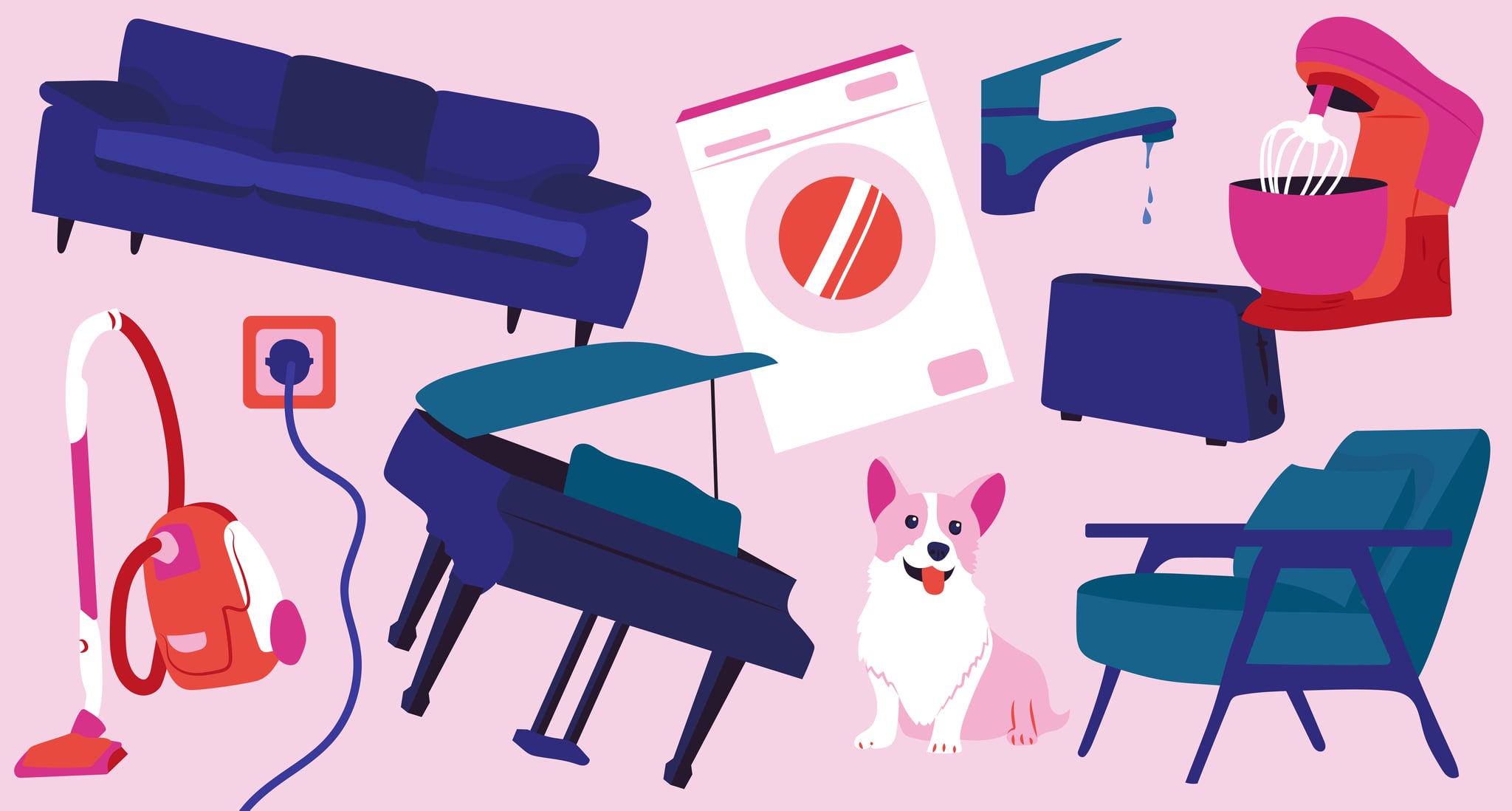Home buying is a major life step for most people, so we were curious to see how women are currently feeling about making the big purchase. We partnered with Rocket Mortgage on a study to take the pulse of what home buying timelines look like for women around the country. The results that came back showed a wide range of feelings, and made it more apparent than ever that the pandemic had (and is still having) a huge impact on the housing market and the way women see their futures.
One of the biggest takeaways from the study was that women are taking more time to do research and grow their confidence about how to navigate the home buying process. However, most aren’t ready to take the plunge just yet — instead, they’re opting first to establish a healthy budget and strategically pay off any debt.
The majority of our study respondents also said that they don’t have a great handle on everything from budgeting and credit to loans and saving — so we tapped Katie Barish, Rocket Mortgage’s Executive Vice President of Purchase, to help women successfully create a budget, so they can start down the path to homeownership.
Barish said that the biggest mistake people make when creating a budget is only focusing on surface-level expenses (think: car payments, rent, credit card bills, cell phone plans). She said it’s important to go deeper. “Pull up your bank account and credit card statements to really understand how much money is going to things like shopping, entertainment, groceries, gas, and utilities,” she said. An app like Mint is helpful to organize these expenses, said Barish.
To actually start crafting your budget, a process called gap analysis should be your first stop. “The gap between your target and your current cash flow is very important. You need to know the total savings target you are driving toward so it can be broken down monthly,” Barish said. “That includes knowing how much money you have going in and how much is going out. You will have to make some decisions when reviewing expenses of what you can and can’t live without. Do you need all the streaming services you’re subscribed to? Maybe you could take a few less trips to the bar. It’s important to be realistic with what you are willing to sacrifice and have it written down somewhere to hold yourself accountable.”
Barish said the most common categories that a budget can be broken down into are housing, utilities, transportation, food, entertainment, personal expenses, and health and wellness. However, getting into the nitty-gritty of each of those buckets is important as well — for example, housing can include rent along with things like landscaping, decor, and any general repairs. “The more granular you can get with your budgeting, the better off you will be so there aren’t any surprises,” she said.
If saving for a home is your main focus, there are also a few specific considerations you should think about when sticking to your budget. “The biggest thing to remember when budgeting for a home is that it’s not just a one-time expense,” said Barish. “This is a long-term investment that goes beyond the down payment.”
With that in mind, she explained that there are three major categories to consider. The first is simply getting in the door — i.e. making sure you have enough money for the down payment, closing costs, appraisal costs, and an initial escrow payment (at minimum). Your monthly mortgage payment also falls into this category. “Every situation is different, so the best option for aligning a budget to buying a home is to speak with a mortgage professional early on so they can help you figure out a dollar target that includes everything you will need to cover from closing costs and down payment to prepaid items, like taxes and homeowners insurance,” said Barish.
And if you’re not quite ready to speak with a pro just yet, start to play around with Rocket Mortgage’s home affordability tool to get an idea of what you can afford and how much you’ll need to save.
Next, think about the expenses that actually come with owning a home, like getting a lawn mower, any renovations (large and small), and decor. “It is really important to prioritize these ‘needs’ as opposed to ‘wants’ and realize that this is your house, and you can spread the upgrade across years as your budget allows,” said Barish.
Finally, maintenance costs will inevitably come up over the years. It’s a bummer, but appliances break, gutters need to be fixed, and unattended weeds will take over. Make sure to set aside some money for these expenses — wiggle room in your budget is key. Barish also mentioned that it’s important to have some cushion in your budget since property taxes tend to go up every year.
At the end of the day, what matters is that you hold yourself accountable and have a clear goal that you’re working toward. That also means rewarding yourself when you reach milestones — even the small ones! “If you’ve decided that you won’t be buying dinner every day, reward yourself with a night out or order in once a week,” Barish said. “It’s much easier to cut back than to completely cut something off. If you have kids and are worried about everyone being cooped up in the house for too long, set a plan that everyone will be excited about, so they feel invested and want to help with achieving the goal. It’s OK to have these little rewards baked into your plan that will keep you motivated.”
And even the most genius budgeteers will likely need to adjust their initial plans — which is totally OK. Barish recommended having a 90-day lookback, where you take stock of how you did, look at where you stuck to your plan and where you did a little bending. Don’t be afraid to reevaluate and pivot in order to make progress.
Ready to start the home buying process? Head to Rocket Mortgage to learn more and get started.
Rocket Mortgage, LLC; NMLS #3030; www.NMLSConsumerAccess.org. Equal Housing Lender. Licensed in 50 states. For additional information please visit RocketMortgage.com.
Source: Read Full Article


